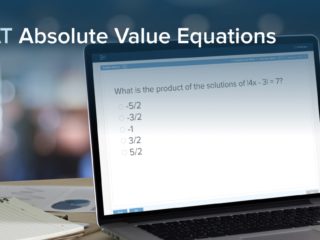Last Updated on May 10, 2023
GMAT Guideline
We are given that k = 5.1(10^n) and must determine the value of k. In further analyzing the equation with k, we see that k is equal to 5.1 raised to some power of 10. If we can determine the value of integer n, then we can determine the value of k.
Statement One Alone:
6,000 < k < 500,000
In statement one, we are given that k is between 6,000 and 500,000. Let’s look at the results of raising 5.1 to various powers of 10 and compare each result to the given range of values of k:
5.1 x 10^1 = 51 This result is too small.
5.1 x 10^2 = 510 This result is too small.
5.1 x 10^3 = 5,100 This result is too small.
5.1 x 10^4 = 51,000 This result works.
5.1 x 10^5 = 510,000 This result is too large.
Since k is equal to 5.1 times 10 raised to some positive integer power, we see that the only value of n that allows k to fall between 6,000 and 500,000 is 4.
Since we have one value for n and thus one value for k, statement one is sufficient to answer the question. We can eliminate answer choices B, C, and E.
Statement Two Alone:
k^2 = 2.601(10^9)
If k^2 = 2.601(10^9), then k is equal to the positive or negative square root of 2.601(10^9). That is, k = [Symbol][2.601(10^9)] or k = –[Symbol][2.601(10^9)]. However, since we know k = 5.1(10^n) for some positive integer n, k must be positive. Therefore, k = [Symbol][2.601(10^9)]. Since we only obtain one value for k, statement two alone is sufficient to answer the question.
Answer: D



